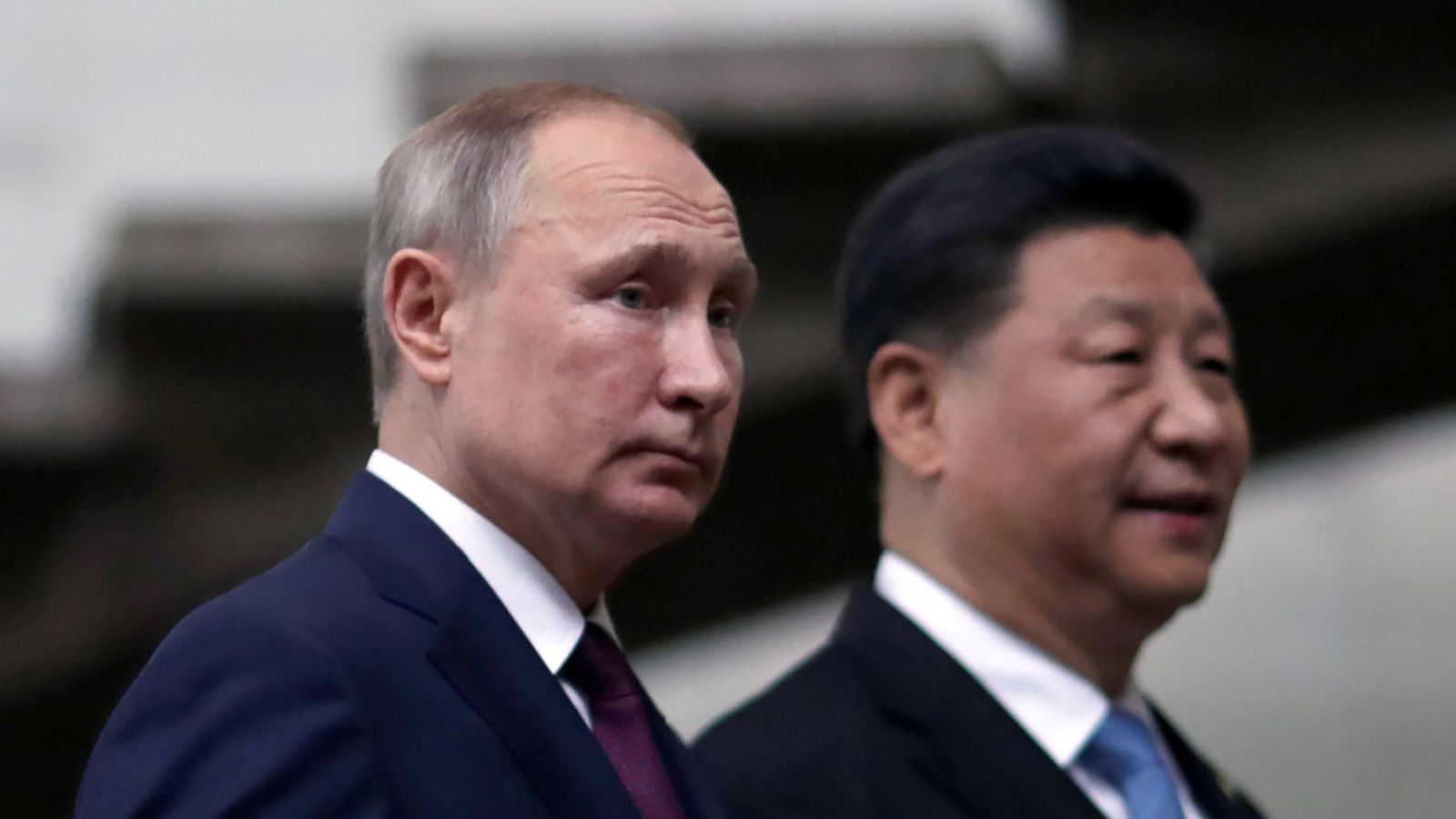Vladimir Putin has created a new “iron curtain” in Europe but Western allies must not forget the long-term challenge posed by China, the head of the Royal Navy has warned.
Admiral Sir Ben Key, in his first public speech as First Sea Lord, said his underlying message was “focusing solely on the Russian bear risks missing the tiger”.
He set out how Russia‘s war in Ukraine was fundamentally changing the European security environment, with historically neutral Finland and Sweden choosing to join the NATO alliance and NATO allies bolstering their defences across eastern and southeastern Europe.
Moscow “represents a near and present danger to us and we must respond”, Admiral Key said, addressing a conference on Tuesday in London held by the Council on Geostrategy think tank.
“So, if we in the Western militaries move to ensure we can deter further aggression along the border of eastern Europe, Putin has through his actions created a new iron curtain from the Baltic to the Black Sea.”
The term “iron curtain” was used to describe the divide between the Soviet Union and Western allies during the Cold War.
In recent weeks Sergei Lavrov, the Russian foreign minister, has accused NATO of again drawing an “iron curtain” over Europe as it moved troops, ships and warplanes to protect allied borders after the Russian invasion of Ukraine.
Russian cyber spies targeting NATO countries in new hacking campaign
Russia’s number one ranked tennis player Daria Kasatkina comes out as gay
President Zelenskyy sacks Ukraine’s security services chief and top prosecutor over ‘treason’ in their ranks
Ukraine is not a member of NATO but wants to be.
Still focusing on the invasion, the First Sea Lord condemned Russia for effectively using its navy to shut off Ukraine’s coastlines, causing a global shortage of vital grain.
“The world is being held to ransom by a maritime blockade, it is that stark,” he said.
Please use Chrome browser for a more accessible video player
Yet the UK and its allies must also be prepared to deal with an increasingly powerful China, which has a national income 10 times that of Russia and is spending more than four times as much on its military capabilities.
“To use a nautical analogy, we must take care to scan our binoculars across the whole horizon,” the naval chief said
“The risk of focusing solely on Russia… is if you miss the long-term, strategic challenge posed by China… while we see Russia as a clear and present danger, China is posing a long-term challenge.”
He said the Chinese Communist Party – like Western allies – will be drawing lessons from the war in Ukraine and how the West has responded to Russia’s aggression.
“China is indeed one of the great beneficiaries of this conflict,” the First Sea Lord said.
“For us having potentially in some areas overestimated Moscow’s military capabilities, we must be wary of underestimating those of Beijing.”
He was referring to how Russia’s armed forces failed in what was meant to be a lightning strike on Kyiv in the early weeks of the Ukraine war – exposing the military as being far less capable than most Western analysts had anticipated.
Read more:
Russian cyber spies target NATO allies
Europe will be ‘much less safe’ if NATO does not push Putin’s forces out
In Asia a young democracy sits next door to an authoritarian giant in a mirror of Europe
Admiral Key indicated that the Ukraine experience demonstrated the importance of alliances for the world’s democracies in the face of authoritarian threats – something that could be applied to help keep peace around Taiwan, a key flashpoint when it comes to China.
China has warned it could take control of the democratically-ruled territory through force if necessary.
“Our Chinese friends might argue that alliances… are only things that weak countries need to do but history shows that such thinking is flawed,” Admiral Key said.
“The evidence is that states that don’t build alliances are the ones which ultimately fail.”








